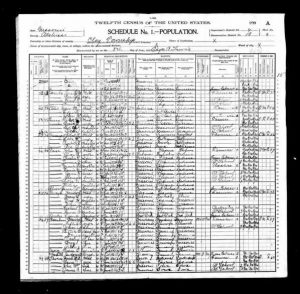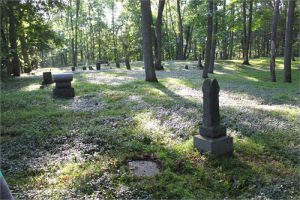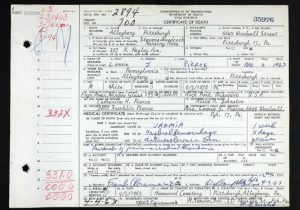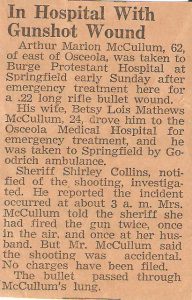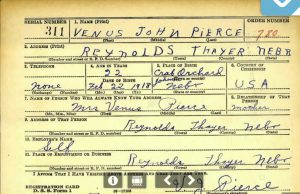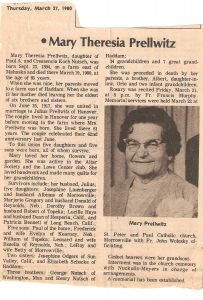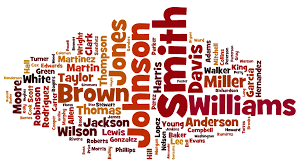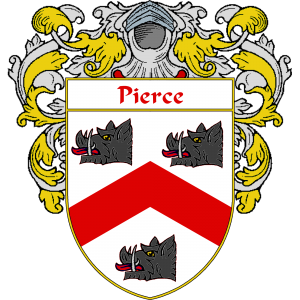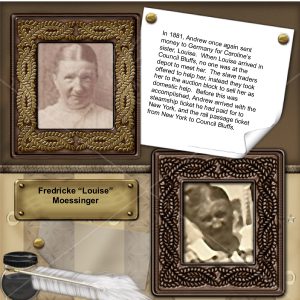Once you start finding information on you ancestors, you are going to become curious enough that you are going to want to visit the homes of their origins. You will want to walk the paths that they walked, and try to imagine the life they had there, the places they visited, the things they did and the memories they made. If their house is still standing you will want to walk the halls, and picture them there in their glory. You will want to map out the blueprint of the life they lead. You won’t be able to help yourself, you will become a traveling genealogist.
When you start wandering in this journey, you are going to want to be prepared. I too many times have made a tract to the uncharted land being unprepared for what I would find. Some of my travels have been impromptu and I ran into information that I had no way to track. I want to share with you some things to think about before you begin your journey. 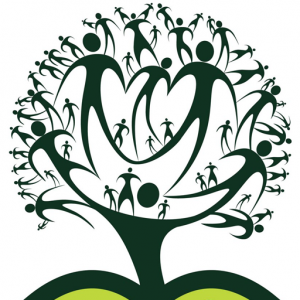
BEFORE YOU LEAVE
Some things you might want to be sure to have with you is your data. How in the world can you take that all with you? If it’s early in your search you may just have a 3 ring notebook with your pedigree charts in it. This will work fine, but if you are forty or fifty years into your research you probably have a tree that contains way too much information to carry with you.
With the wonderful technology of the online world it is a bit easier than it use to be. There are software programs, and apps that you can download to your lap tops, phones and ipads that can help you but you have to be in an area that has service. This would be fine for the library and courthouse but the cemeteries you will visit most likely will not offer up a connection. I would definitely put them in my bag to take with me though. You might want to take a camera, but your phone or ipad will most likely do. Make sure your batteries are charged, you have a note book and pen for all the notes you will take. (TAKE LOTS OF NOTES)
Personally, I have not found an app for the ipad or phone that I like. (I’m still looking and open to suggestions). If your tree is small they may work better for you. My tree is too big and they seem to take a long time to load and freeze up. In this case it might be a good idea to “break” up your tree into smaller trees in order to use the app. (Something I have not yet done).
One thing I particularly like about the My Heritage software is that you can search by location. This is a great way to find all the people who have lived or are buried in a certain area. Everytime I do a survey for Ancestry.com I ask for this feature. Ancestry does have search all people feature, and you can put in a surname and it will bring everyone with that last name up, with their info so you can scroll through and see who is buried in the area, but it isn’t as nice as knowing all the people in that area as other surnames could be in the area also .
FREE APPS
There are all kinds of tree apps available in the app store. My suggestion would be to try out a few and find one you like. I have tried Ancestry, Family Tree, but don’t really care for either. Like I said previously they are just a bit difficult to maneuver, but they would be handy for having your info available while traveling. Check out your app store and try a few and see what one might work for you.
CALL AHEAD
Call ahead if at all possible. Often times I have arrived at my destination only to find that the library or court house was closed, or the person you wanted to visit wasn’t home. This is a big disappointment. Make sure the times on the website are correct. I showed up at the library a little before noon only to learn that they close at noon on a Saturday when the website said they were open until 4.
Of course there are going to be times when you don’t know who you want to talk to until you find them. I’ve gotten phone numbers of cousins that I wasn’t able to get ahold of on the phone while I was in town and had to leave empty handed.
VISIT THE LIBRARY
The Library is one of the best places to visit to find old newpaper clippings, obituaries, and information on the city, locations of cemeteries, etc. More and more libraries are becoming genealogy friendly. Some have a separate department just for such. Some will have a researcher there to help you and other smaller libraries you will be on your own. I have yet to visit one that has not had very helpful people there.
Do a little research before you leave and make sure you know where the library is, what time they are open, and if there is someone available to help you. Once you’ve determined the repository and records you plan to research, it is definitely worth the time to call to make sure the records are available for research.
Most of your old newspapers will be on micro film. Once you get the hang of how to use it you will find all kinds of infomation. It is however time consuming so keep that in mind before you start and be sure to allow enough time. I found it very helpful to have someone with me. I would look up the information as to who and when, find the micro film, and have them search. It saved a lot of time and I came away with much more info.
VISIT THE COURTHOUSE
Visiting the courthouse is something I personally have not done. To be honest, it scares the hell out of me, but there is a treasure trove of information to be found there, from land deeds, to vital records, and wills.
Plan out what you want to find before you go. You will have less distractions and be able to stay more focused if you do. Call ahead and see if the records you are looking for are available. Due to fires and other catastrophes many records have been destroyed or moved to another repository. Many records have been preserved on micofilm.
LOCATE YOUR CEMETERIES
Find a Grave has many of the cemeteries you want to visit listed with the location. Look up your cemeteries before you go so that you don’t find yourself driving wanderously through the country only to find a corn field. The local courthouse or library may also have the information you need. If the cemetery isn’t a real big one, browse through the whole thing. Some cemeteries have a registry that will list the names of the people buried and the row and plot in which to find them. This is a big time saver, plus you can scan the registry and see if there are others in the cemetery that you might not have known about. Some of your bigger cemeteries have a caretakers office that keeps records and will help you locate the person you are searching.
HISTORICAL SOCIETY
The historical society or local genealogical society is a great place to visit, as well as your local museums. They often times will be able to give you all kinds of information you might not have found elsewhere. Always call ahead though as I have found that in your smaller rural areas they are generally managed by volunteers and are open by appointment only.
ALLOW ENOUGH TIME
Make sure to allow enough time, though no matter how diligent you are in your plans you will never feel like you have enough, and once you find something interesting you will want to dig for more! If you are not thousands of miles from your destination you can always easily return but generally this is not the case.
Dress appropriately as you will be doing a lot of walking and standing, so wear comfortable shoes, and don’t forget to take your bug spray for those cemetery searches or walks in the country if you discover a homestead.
Always be polite and respectful to those that are helping you. Try to avoid asking questions that do not relate to the search.
If you find some value in this post please leave me a comment and as always if I am able to help you in anyway please let me know how I may be of service.
Happy Hunting!

